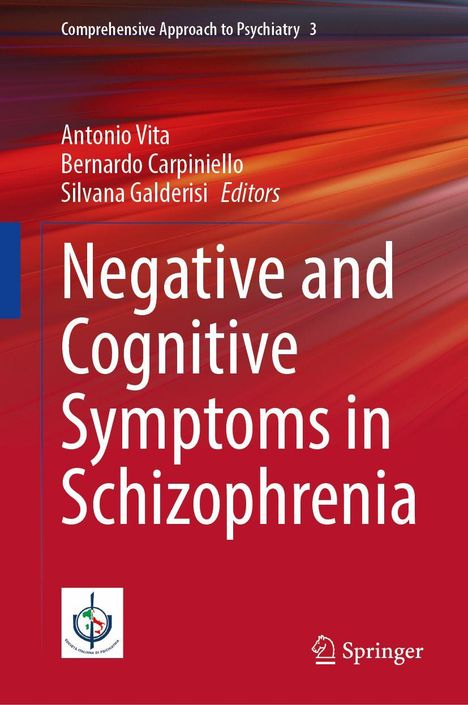Negative and Cognitive Symptoms in Schizophrenia, Gebunden
Negative and Cognitive Symptoms in Schizophrenia
- Publisher:
- Antonio Vita, Bernardo Carpiniello, Silvana Galderisi
- Publisher:
- Springer, 01/2026
- Binding:
- Gebunden
- Language:
- Englisch
- ISBN-13:
- 9783032062086
- Item number:
- 12407496
- Volume:
- 380 Pages
- Weight:
- 802 g
- Format:
- 241 x 160 mm
- Thickness:
- 25 mm
- Release date:
- 3.1.2026
- Note
-
Caution: Product is not in German language
Blurb
The book discusses the definition of negative and cognitive symptoms and offers a comprehensive and up-to-date overview of their impact on patients' real-life functioning and quality of life. It covers the available assessment instruments, including those in early intervention settings, and explores possible treatments, both pharmacological and non-pharmacological. Negative symptoms are common and pervasive in schizophrenia, significantly impacting an individual's life and serving as strong predictors of functional outcomes. However, they are often underrecognized and undertreated compared to positive symptoms. Addressing negative symptoms requires a multimodal approach. Enhancing our understanding and developing effective treatment strategies for negative symptoms are essential for improving the well-being of individuals with schizophrenia. Cognitive dysfunctions represent a core feature of schizophrenia, present at any stage of the disease and in subjects at high risk for psychosis (UHR), and they also have a significant impact on patients' psychosocial functioning. While pharmacological treatment is modestly effective for the cognitive dimension, there is considerable evidence of the efficacy of cognitive remediation interventions on cognition and functioning. In the volume, particular attention is given to the relationships, overlap, and independence of the two dimensions in schizophrenia. The authors explore how to disentangle the relative prevalence and role of such dimensions in patients' everyday lives and discuss the differential effectiveness of treatment options. This book is the first effort to explore the complex relationships between negative and cognitive symptoms in a dedicated format, featuring contributions from many of the best-recognized experts in the field. It fills a gap in the existing literature and will, therefore, be a key resource for clinicians and researchers in the field.

